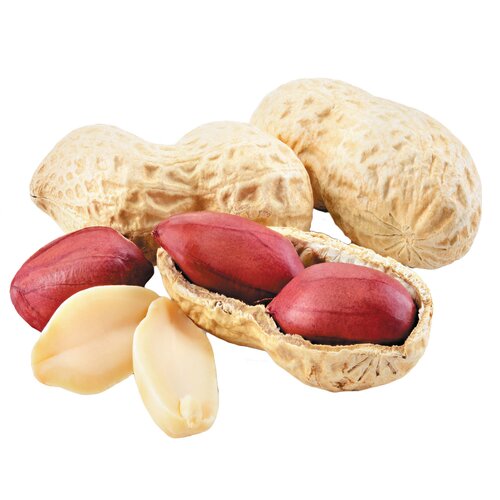Product Details
Botanical Name: Arachis hypogaea
Origin country: Vietnam
Extraction: Cold Pressed
Shelf Life: Minimum of 2yrs
Product Classification: Natural Harvested; USDA Organic;
INCI Name: Arachis hypogaea Nut Oil
CAS Number:
Package: 25 - 50 - 180 kgs/drum
Peanut oil, also referred to as groundnut oil or arachis oil, is a vegetable-derived oil made from the edible seeds of the peanut plant.
Though the peanut plant flowers above ground, the seeds or peanuts actually develop underground. This is why peanuts are also known as groundnuts.
Peanuts are often grouped with tree nuts like walnuts and almonds, but they are actually a type of legume that belongs to the pea and bean family.
Depending on processing, peanut oil can have a wide range of flavors that vary from mild and sweet to strong and nutty.
There are several different types of peanut oil. Our peanut oil is Cold-pressed peanut oil. In this method, peanuts are crushed to force out the oil. This low-heat process retains much of the natural peanut flavor and more nutrients than refining does.
Peanut oil is widely used around the world but is most common in Chinese, South Asian and Southeast Asian cooking. It became more popular in the United States during World War II when other oils were scarce due to food shortages.
It has a high smoke point of 437℉ (225℃) and is commonly used to fry foods.
Peanut Nutrient Composition
Here is the nutritional breakdown for one tablespoon of peanut oil:
• Calories: 119
• Fat: 14 grams
• Saturated fat: 2.3 grams
• Monounsaturated fat: 6.2 grams
• Polyunsaturated fat: 4.3 grams
• Vitamin E: 11% of the RDI
• Phytosterols: 27.9 mg
The fatty acid breakdown of peanut oil is 20% saturated fat, 50% monounsaturated fat (MUFA) and 30% polyunsaturated fat (PUFA).
The main type of monounsaturated fat found in peanut oil is called oleic acid, or omega-9. It also contains high amounts of linoleic acid, a type of omega-6 fatty acid, and smaller amounts of palmitic acid, a saturated fat.
The high amount of omega-6 fats that peanut oil contains may not be a good thing. These fats tend to cause inflammation and have been linked to various health problems.
The considerable amount of monounsaturated fat found in this oil makes it a go-to for frying and other methods of high-heat cooking. However, it does contain a good amount of polyunsaturated fat, which is less stable at high temperatures.
On the other hand, peanut oil is a good source of vitamin E, an antioxidant that has many health benefits like protecting the body from free radical damage and reducing the risk of heart disease.
